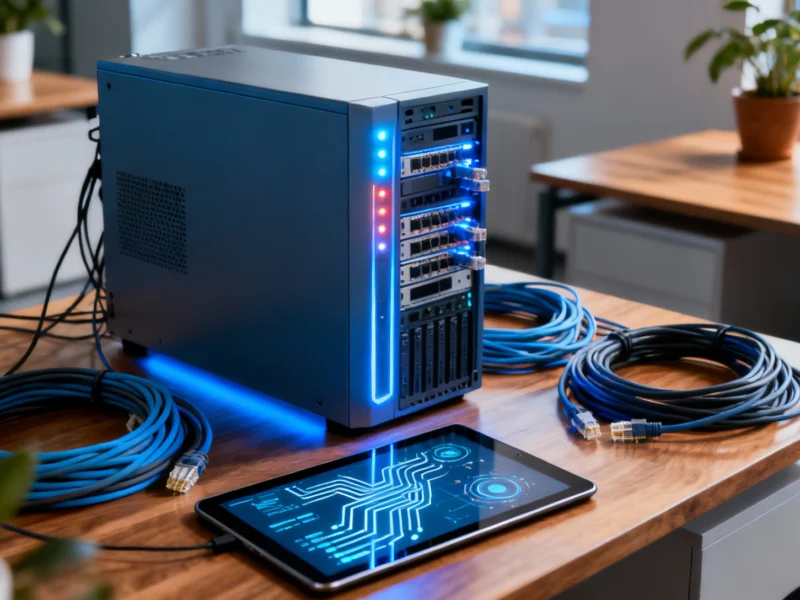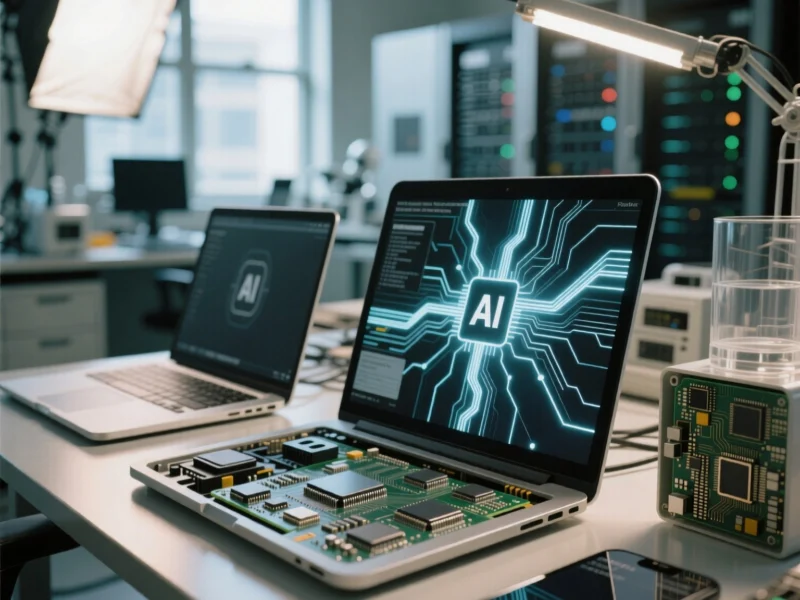In a surprising twist of technological progress, artificial intelligence isn’t just replacing human jobs—it’s creating entirely new ones. The emerging role of AI automation engineer represents a fascinating synthesis of human insight and machine capability, where professionals work alongside teams to identify workflow improvements and implement intelligent solutions. This position has evolved from traditional learning and development roles into a strategic function that bridges the gap between technological potential and practical implementation.
The Evolution from Learning Designer to AI Automation Engineer
Many AI automation engineers arrive at this position through unexpected career paths. “I used to spend my days helping teammates learn through training and enablement resources,” explains one professional who transitioned from learning design to her current role. “Now I sit inside our human resources team building AI-powered workflow solutions, but the core mission remains helping people do their best work.” This evolution reflects how artificial intelligence is creating specialized roles that leverage human understanding of organizational dynamics.
The role demands a unique combination of skills: technical proficiency with automation platforms, deep understanding of team processes, and the ability to translate between human needs and technological solutions. According to recent analysis from industry experts note, innovation often stalls not from lack of technology but from inability to implement it effectively within existing structures.
What AI Automation Engineers Actually Do
At its core, the AI automation engineer embeds with a team—whether in HR, marketing, engineering, or other departments—to identify opportunities for improvement and build customized solutions. The role involves:
- Analyzing current processes and identifying pain points
- Designing and implementing AI-powered workflows
- Ensuring data security and appropriate technology use
- Measuring impact and refining solutions
- Training team members on new systems
“The goal is to create measurable improvements that free teammates for creativity, strategy, and connection,” notes one practitioner. This approach aligns with broader trends in workplace automation that complement rather than replace human capabilities. Additional coverage of economic transformations suggests that roles blending technical and human skills will become increasingly valuable.
Why This Role Is Growing Across Industries
As organizations recognize AI’s potential but struggle with implementation, the AI automation engineer serves as a crucial bridge. “Lots of teams see AI’s potential but get stuck turning ideas into action,” observes one professional. “The gap is less about technology and more about translation: understanding how a real process works today, where it fails, what data is safe to use, and what ‘better’ even looks like.”
This translation function is becoming essential across departments:
- Content marketing teams might hire AI automation engineers with content expertise rather than additional writers
- Engineering departments may seek these professionals with technical backgrounds instead of junior coders
- HR teams benefit from specialists who understand both people processes and technological solutions
Data from global economic trends indicates that organizations investing in such hybrid roles demonstrate greater adaptability during technological transitions.
The Unique Human Skills AI Automation Engineers Bring
Despite the technical nature of the work, the most valuable contributions of AI automation engineers often stem from distinctly human capabilities. These professionals combine the problem-solving approach of an engineer with empathy, contextual understanding, and change management skills. They don’t just implement technology—they ensure it serves human needs and organizational goals.
Related analysis of international business adaptations shows that successful technological integration depends heavily on professionals who can navigate both technical and human dimensions. The AI automation engineer represents a new category of artificial intelligence professional whose value lies in their ability to enhance rather than replace human work.
The Future of Human-AI Collaboration in the Workplace
As artificial intelligence continues to evolve, roles like the AI automation engineer will likely proliferate and specialize. These positions represent a new paradigm where humans and AI systems collaborate, with each focusing on their respective strengths. The human professional provides context, ethics, creativity, and strategic thinking, while AI handles pattern recognition, data processing, and repetitive tasks.
This emerging job category demonstrates that the future of work isn’t about humans versus machines, but about humans and machines working together in novel configurations. As one AI automation engineer summarizes, “I think we’ll be seeing this title pop up more and more as time goes on—and it will likely splinter into more specialized versions as the field matures.”
The creation of such roles suggests that rather than making human workers obsolete, artificial intelligence may actually generate new opportunities for people to contribute meaningfully to organizations—provided they develop the right combination of technical and human-centered skills.



